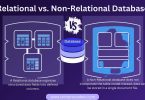Google’s constantly developing algorithms set the rules for SEO marketing, that both marketers and agencies must work hard to comprehend and adhere to.
Due to the 200 ranking variables, Google takes into account for its SERPs (Search Engine Results Pages), many of which are beyond our control, SEO is frequently referred to as difficult to define or a mystery.
How Web Hosting Impacts SEO?
What measures should marketers adopt to keep their PageRank? In addition to the website, a number of other factors especially the selection of web hosting are crucial in this equation.
Let’s look at a few important spots where hosting might impact SEO.
Uptime/Downtime:
Selecting the right hosting type significantly affects your site’s uptime and downtime. Search engine crawlers frequently visit your website and log any outage that prevents access. This can cause Google to raise red flags, which will hurt your page rankings.
Take into account that 1% of a month’s downtime equals 7 hours, which could have an effect on businesses, particularly e-commerce sites that depend on uptime to generate income.
However, during necessary restoration, some downtime is unavoidable. It’s important to ask your hosting company how often they perform maintenance. Managed hosting companies can do an RTO/RPO test, which provides realistic recovery timings in the event of server unavailability.
Select a supplier that at least promises 99.9% uptime, with only 8.8 hours of downtime per year.
Single Points of Failure (SPOF) and network security are additional elements that affect downtime. Hosting providers should offer additional security features to protect against malware and DDoS attacks.
Speed: Due to people’s shorter attention spans, loading times for websites are crucial. According to research, 40% of visitors leave websites that take longer than three seconds to load, which has an effect on your traffic and SEO.
Google takes website loading speed into account in its algorithms, identifying poor loading times that have an immediate impact on your SEO.
Google has been taking into account load speed in its results since 2010, recognizing the user churn brought on by poor loading times.
Shared hosting users often experience slower loading times due to shared resources.
When choosing a hosting package, it’s essential to consider your website’s traffic, storage requirements and resource needs. VPS, cloud hosting or dedicated servers offer faster speed and performance. Hosting providers should provide content delivery networks (CDN) to minimize page content loading delays.
Server Location:
Your website’s performance and load times may be greatly impacted by your web server’s location. When you choose shared, VPS or dedicated server hosting, your website is physically housed within the Data Center (DC) of your provider. This location’s proximity has a direct impact on load speed.
A remote server location could raise red flags for search engine algorithms, lowering SEO ranks. The majority of your website’s visitors should be close to your data center. For instance, websites with a UK-based IP address appear higher on the SERP when someone searches for a UK-based company.
Using a Content Delivery Network (CDN) can be advantageous. Data centers and proxy servers are connected by geographically dispersed networks known as CDNs. To deliver their material, content owners pay CDN operators, who in turn pay Internet Service Providers (ISPs) to host servers in their Data Centers (DCs). A server’s IP address affects Google search results; and a local server location ensures more relevant website traffic. Selecting a local host makes it easier to target local customers and raises the local search engine rankings of your web business.
Shared Hosting:
The impact of shared hosting on SEO has been debated, particularly concerning shared IP addresses. While opinions vary, Google employees have indicated that a shared IP might not necessarily be detrimental unless a large number of sites on the network are spammy or problematic.
Shared hosting can eventually affect your website’s bounce rate. If another site has a spike in traffic, your site may be impacted because of shared resources like IP addresses, bandwidth and servers. For websites with fewer than 1,000 daily visits, shared hosting is appropriate. Upgrading to VPS, Dedicated Servers or Cloud hosting becomes important if you have several web pages, huge traffic volumes and growing operational requirements for your company.
Essential Tips When Choosing a Hosting Provider:
Consider the following extra aspects when selecting a hosting provider:
Support: Choose between managed and unmanaged hosting. For the knowledge, resources and Service Level Agreements (SLAs) they offer, managed assistance services from hosting providers are advised because they free up your time for important initiatives.
Certificates for SSL: Data on the internet is authenticated and encrypted by Secure Socket Layer (SSL) certificates. Select between paid and free SSL certificates to protect your website, depending on your industry, traffic, data security and hosting needs.
When renewing or changing your domain names, keep control over the old ones. Maintain traffic flow when switching to a new domain by using 301 redirects.
Conclusion:
In the world of online success, web hosting and SEO are beneficial for each other. Google’s rules keep changing, making SEO seem like a puzzle. But here’s the secret; your web hosting choice is your superpower. It influences your site’s loading speed and accessibility frequency. Shared hosting debates might confuse you, but the solution is clear, pick hosting that fits your needs. Think of it like choosing the right home for your website. Make it fast, accessible and secure. In this digital journey, your hosting choice isn’t just a decision; it’s your key to online triumph.







